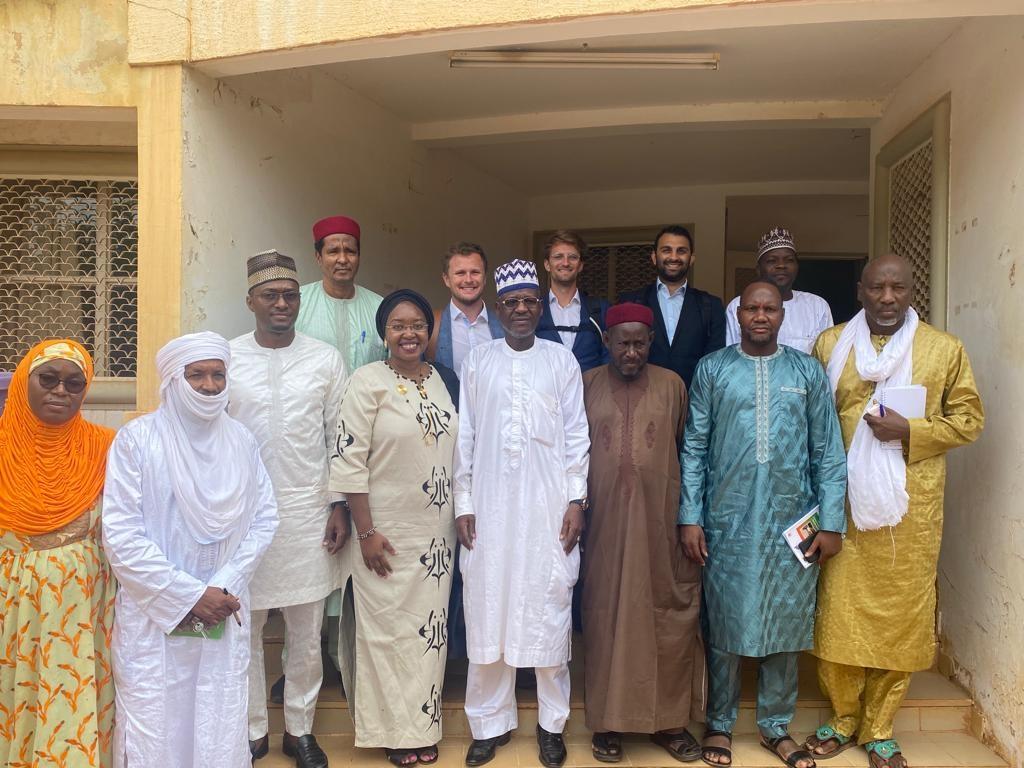Securing the Sahel: Enhancing resilience in Niger

Niger is a Sahelian, landlocked and low-income country of approximately 25 million inhabitants with an estimated GDP per capita being among the lowest in the world (US$ 591 in 2021). The country is exposed to multiple risks of fragility, conflict and violence which coupled with extreme weather conditions and natural disasters result in increased food insecurity and other challenges. Successive shocks, most recently the Covid-19 pandemic and the 2020 flooding disaster only heighten the fragility.
The WBG has initiated a new technical assistance project supported jointly by GIIF and by the CDRF Umbrella Trust Fund, which aims to help the government improve value chain competitiveness, enhance the investment climate through digitization, and promote climate resilience. This interview highlights this joint work with our colleagues, John Plevin and Fatimata Dicko, and it offers a summary of activities completed to date and planned next steps. We connected with the Team Leader, John Plevin, to get his views on the project and specifically on the agriculture insurance component in Niger.
As the project team, could you please give us an overview of the challenges of the agriculture sector in Niger and brief our reader about the role this project could play in the overall development of the ecosystem?
John Plevin: A large proportion of Nigeriens are engaged in subsistence farming or pastoralism. There is a high level of informality, with low financial inclusion and only limited engagement in unsophisticated export-oriented value chains. These farmers do not have the opportunities nor means to invest in improving their lives and livelihoods whilst their exposure to perils such as droughts, pest and diseases, and flooding adds to these other factors to make them some of the most vulnerable people in the world.
Currently there is practically no market for agricultural insurance in Niger, meaning that households, banks, SMEs and government cannot effectively manage their risk. Household welfare and food security remain dependent on the outcome of volatile cropping seasons and government budgets are uncertain and expensive, responding to crises on an ad-hoc basis with limited resources. Meanwhile banks and MFIs are reluctant to lend, meaning that finance is not available to invest in more productive inputs and activities to improve economic output and welfare.
Could you please share with us some highlights of the WBG’s efforts to increase the livelihoods of smallholder farmers in Niger?
John Plevin: Benefiting from strong leadership and motivation from stakeholders across the public and private sector, the project has been working with the CNAAI (Comite National d’Assurance Agricole Indicielle) to build capacity and inform policy to grow an agricultural insurance market in Niger. The CNAAI aims through agricultural insurance to protect the welfare of the most vulnerable against shocks; increase access to finance; and promote investment and growth of the agriculture sector in Niger.
The project is leveraging international expertise and experience to support Government of Niger and the CNAAI by providing them with the knowledge and tools they need. These include conducting workshops and training; generating studies and analytics; and supporting study tours. One significant study is the comprehensive feasibility study for the development of an agricultural insurance market and products.
For me, a major highlight was an agricultural insurance training workshop led by the World Bank with the CNAAI, during which we experienced an unprecedented level of engagement (we know agricultural insurance is a dry topic!). Attendees were enthusiastic, well informed, and engaged throughout: making the workshop very constructive. I have run similar workshops and meetings in many other countries across multiple continents, but I have never seen anything like it – it was a real buzz! Furthermore, the opening of the workshop was attended by no fewer than 6 Ministers, with coverage in national and regional news.
Following these initial actions, what do you envision about your next steps, potential collaborations and the design of any implementation work?
John Plevin: We are still in the early stages of development, but we see many reasons to believe that an effective market can grow and ultimately flourish to help improve financial resilience, livelihoods, and investment in Niger.
In order to grow the market from scratch, it will be critical to form a strong public private partnership to make the most of finance, networks, and expertise from government, insurers, farmer groups, banks, and international organizations. International experience shows that neither the public, nor the private sector can develop and operate effective programs alone.
Continuing to build knowledge and technical capacity will be key, but must me matched with policy action and investment in areas such as: building institutions and structures for cooperation; developing clear governance forums to engage with a range of stakeholders (i.e. through CNAAI); investing in data and analytics; identifying sources of finance for insurance premiums; financial education; identifying distribution channels and developing digital registration, communication, and payment systems.
Sadly, developing effective markets for financial protection is not as simple as designing a product and then selling it. It requires ongoing effort and investment from across the board to reap the promised benefits. However, these investments are valuable in their own right. They bring huge additional benefits including improving financial inclusion, enhancing understanding of risk and early warning systems, better financial planning and risk ownership, … the list goes on.
Looking at the overall picture and considering the WBG’s multi-dimensional support to improve sustainability, resilience, and the welfare of the most vulnerable, this is indeed a significant development for the agriculture sector in Niger.
We thank John Plevin for his valuable insights and contribution to this piece.
